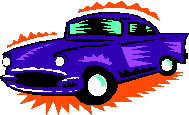|
|
How
to Fight Fatigue While Driving

After
a long, stressful day at work, most of us can't wait to make that drive home.
But that drive, especially if it's a lengthy commute, could be extremely dangerous
if you're completely exhausted and find that cushy driver's seat too comfortable.
Fatigue behind the
wheel is a very real danger, even if you've never experienced it firsthand. The
National Safety Council offers these tips for staying awake while you're driving:
-
An
obvious cause of fatigue is lack of sleep. If you haven't received seven or eight
hours of sleep the night before a trip, you're courting fatigue. Get enough rest.
And don't start a trip late in the day. Long-distance driving is hard work, and
you need to be fresh and alert.
-
If
possible, don't drive alone. Passengers can take turns driving and also serve
as conversation partners to keep you awake.
-
Avoid
long drives at night. The glare of lights, both on your dashboard and outside
your car, increases the danger of highway hypnosis.
-
Adjust
your car's environment so that it helps keep you awake and alert. Keep the temperature
cool, with open windows or air conditioning in the summer and frugal amounts of
heat in the winter. Turn the radio volume up, and switch stations frequently,
but avoid soft, sleep-inducing music. Do not use cruise control; keep your body
involved with the driving.
-
Watch
your posture. Drive with your head up and your shoulders back. Tuck your buttocks
against the seat back. Legs should not be fully extended, but flexed at about
a 45 degree angle.
-
Take
frequent breaks. At least every two hours, stop at a gas station, restaurant or
rest stop. Get out of the car, walk around, even jog or do calisthenics. Exercise
fights fatigue.
-
In
addition to exercise breaks, stop for light meals and snacks. Avoid alcohol entirely.
-
Don't
allow your eyes to become fatigued or hypnotized. Wear sunglasses to fight glare
(but never wear sunglasses at night).
-
Break
the monotony. Turn the radio on for a while, then off. Vary speed levels. Chew
gum. Stretch your legs, slap your thighs. Talk to yourself. Sing. Keep your eyes
moving.
-
If
anti-fatigue measures fail, and you start noticing the danger signs of fatigue,
then there is only one solution. Sleep. If no motels or rest areas are in sight,
pull off the road in a safe area which is well-lit and take a nap. Even 20 minutes
of sleep might refresh you enough to keep going until you reach a safe rest area.
For
more helpful safety tips, check out the National Safety Council's website at www.nsc.org.
|